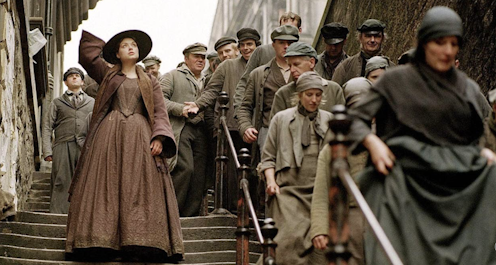Elizabeth Gaskell’s North and South – class warfare, 'shoppy people' and radical love
- Written by Matthew Sussman, Senior Lecturer, University of Sydney

The industrial revolution was one of the biggest cataclysms in European history. Between 1790 and 1850, the countryside rapidly depopulated. Huge masses of people flooded into cities for factory work, living cheek-by-jowl in unhygienic slums.
In Britain, the government could barely keep up with the spirit of laissez-faire capitalism. There were almost no restrictions on child labour, working hours, or safety in the workplace. And, if progressive legislation was proposed, newly emboldened capitalists often resisted it as an imposition on their freedom – and their profits.
The social disruption caused by industrialisation was a nightmare for many poor and working-class people but an immense opportunity for novelists. The new cities had never been represented in fiction, and unless one lived in Liverpool or Leeds, the average person had only a dim understanding of what was taking place there.
The stories of their inhabitants, lurid with poverty and related social ills (such as child death, disease, and alcoholism), were begging to be told. Many authors firmly believed in the novel’s power to raise consciousness and foster political change by documenting these unsightly realities.

















